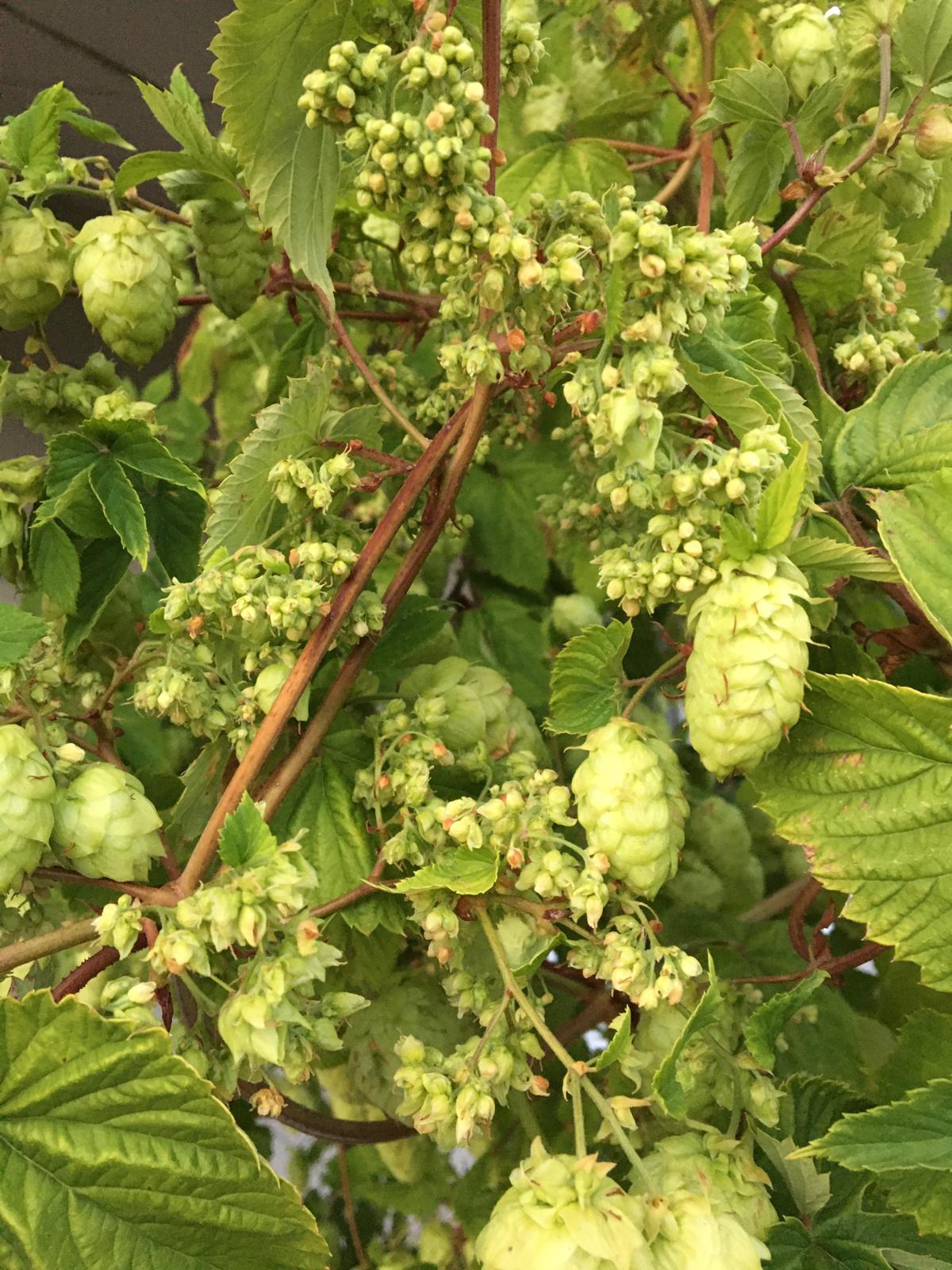100amps
100 Amp (Home) Brewing
Hey all, just thought I'd get your thoughts on this: My Zeus plant and one of my Cascade plants have produced seeds this year. The Zeus plant is loaded with them, the Cascade only has a few seed clusters. I've been growing hops (4 plants) for 6 years here and I've never seen seeds clusters appear. I'm guessing there's a male plant in the neighbourhood, or maybe they were feminized seeds, as described in this snippet I found somewhere.
"Feminized seeds are any seed found on a female plant, which has been pollinated by another female plant or itself, resulting in only x,x chromosome pairs. These will look identical to male seeds, however they will all be female seeds. Hops and it's close cousin, the Devil's Lettuce, are two plants which are commonly feminized."
Is there any best practice on how to handle it. I'll be harvesting the plants in the few days, so the bines (including seeds will go to the landfill soon.
Thoughts?

"Feminized seeds are any seed found on a female plant, which has been pollinated by another female plant or itself, resulting in only x,x chromosome pairs. These will look identical to male seeds, however they will all be female seeds. Hops and it's close cousin, the Devil's Lettuce, are two plants which are commonly feminized."
Is there any best practice on how to handle it. I'll be harvesting the plants in the few days, so the bines (including seeds will go to the landfill soon.
Thoughts?

























![Craft A Brew - Safale S-04 Dry Yeast - Fermentis - English Ale Dry Yeast - For English and American Ales and Hard Apple Ciders - Ingredients for Home Brewing - Beer Making Supplies - [1 Pack]](https://m.media-amazon.com/images/I/41fVGNh6JfL._SL500_.jpg)
































